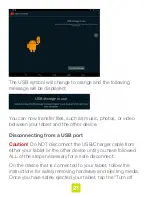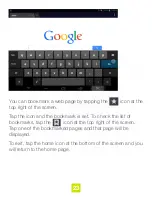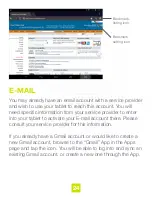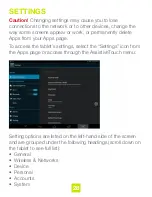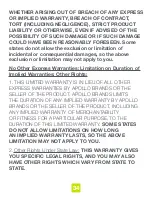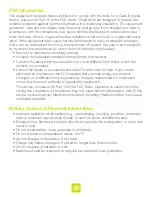
35
FCC Information
This equipment has been tested and found to comply with the limits for a Class B digital
device, pursuant to Part 15 of the FCC Rules. These limits are designed to provide rea-
sonable protection against harmful interference in a residential installation. This equipment
generates, uses and can radiate radio frequency energy and, if not installed and used in
accordance with the instructions, may cause harmful interference to radio communica-
tions. However, there is no guarantee that interference will not occur in a particular instal-
lation. If this equipment does cause harmful interference to radio or television reception,
which can be determined by turning the equipment off and on, the user is encouraged to
try to correct the interference by one or more of the following measures:
• Reorient or relocate the receiving antenna.
• Increase the separation between the equipment and receiver.
• Connect the equipment into an outlet on a circuit different from that to which the
receiver is connected.
• Consult the dealer or an experienced radio/TV technician for help. If you cannot
eliminate the interference, the FCC requires that you stop using your product.
Changes or modifications not expressly by the party responsible for compliance
could void the user’s authority to operate the equipment.
This device complies with Part 15 of the FCC Rules. Operation is subject to the fol
lowing two conditions: (1) this device may not cause harmful interference, and (2) this
device must accept any interference received, including interference that may cause
undesired operation.
Battery Caution & Disposal Information
• Improper operation of the battery (e.g., overcharging, crushing, puncture, excessive
heat or moisture) may produce smoke. In such an event, ventilate the area.
• Extinguish any flames with carbon dioxide, dry-powder fire extinguisher, or cover with
sand or mud.
• Do not disassemble, crush, puncture or incinerate.
• Do not expose to temperatures above 140° F.
• Do not dispose of the battery in the trash.
• Charge fully before storage or if stored for longer than three months.
• Do not dispose of batteries in a fire.
• Batteries should be disposed or recycled per state and local guidelines.

